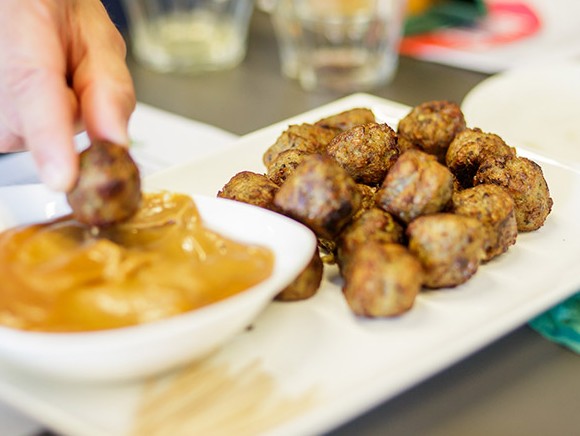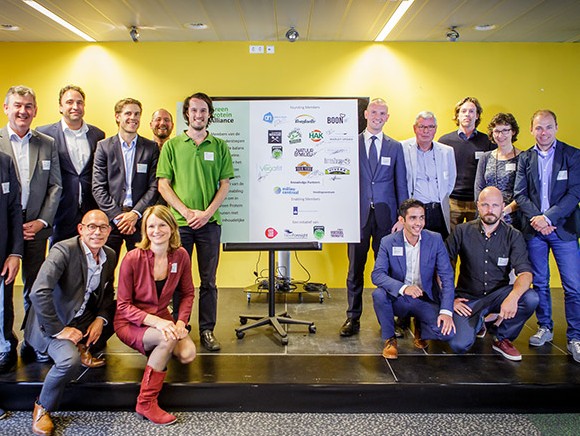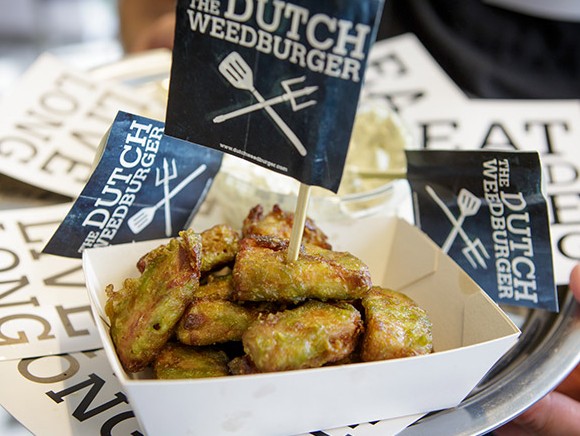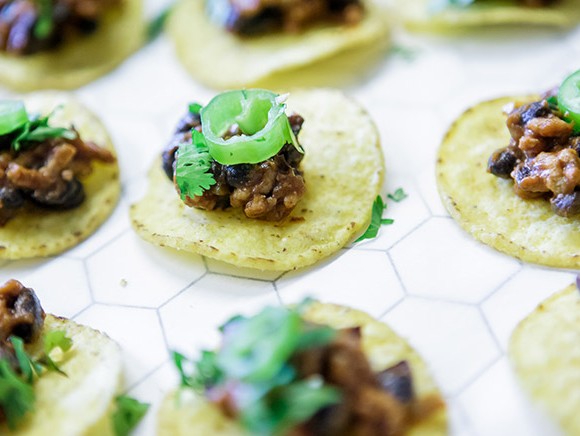
The Green Protein Alliance wants to significantly boost the consumption of plant-based proteins. That is not only better for humans and the environment, but also opens up new market opportunities, according to the participants in this unique collaborative partnership between sustainability pioneers in the food industry. The initiative has the support of government as well as experts in food, health and sustainability.
The market for products made from plant-based proteins – such as from pulses, fungi, algae and nuts – is already very dynamic, driven by growing consumer interest in healthy and sustainable food. According to Voedingscentrum (the Netherlands Nutrition Centre), more and more Dutch people are reducing their meat intake or even cutting out meat altogether for reasons related to animal welfare, the environment or their own health. The Wheel of Five nutritional guidelines are also focused on creating a new balance between animal- and plant-based products. The members of the Green Protein Alliance (GPA) see potential in this growing demand. Just some of the companies involved include Albert Heijn, GoodBite, HAK, Rechtstreex, RotterZwam, The Dutch Weed Burger and Vivera.
If GPA gets its way, it will soon be even easier for consumers to opt for existing and new, delicious products made from plant-based proteins – and not ones that all taste the same, but truly something for everyone. “All the members of the alliance share the ambition for a market in which products made from plant-based proteins are an obvious choice,” says Jeroen Willemsen, one of the co-founders of GPA. “Food for any moment of the day, of high quality, with a good price/quality ratio...and, above all, tasty. At the moment, on average, 30 percent of the protein we eat is plant-based and 70 percent comes from animals. GPA is aiming for a 50/50 split by 2025.”
On 7 July 2016, GPA presented its fundamental values during the kick-off meeting and the members formalised their participation in the alliance. The focus in the months ahead will be on fine-tuning and testing a joint breakthrough approach for 2017 and beyond. At the end of 2016 GPA will announce the first results of this unique collaborative project. Willemsen: “The foundation of the alliance marked the starting point for developing a roadmap. Until the end of this year, we’re focusing on the subdivision of roles and on our strategy. It’s not yet clear who should do what, but we do know which goal we’re working towards. New partners are welcome, but we’re setting off with the wagons that are already hooked up to the train. Others can climb aboard, but only if they share the same belief in this transition as our existing members.”

Green Protein Alliance
14 members: Albert Heijn, Bonduelle, Boon, GoodBite, HAK, Het Planeet, Marley Spoon, Natuur & Milieu, Rechtstreex, RotterZwam, The Dutch Weed Burger, ValkVers – de Cantharel, Vegafit, Vivera
2 knowledge partners: Milieu Centraal, Voedingscentrum
1 supporting partner: Dutch Ministry of Economic Affairs
4 co-founders: DuurzaamDoor (RVO.nl), Het Planeet, NewForesight, Platform Voedseltransitie
Keen to know more about the Green Protein Alliance?
Feel free to contact Jeroen Willemsen: [email protected]
One of the co-founders of GPA is DuurzaamDoor, a government programme promoting sustainability. At an expert meeting set up by DuurzaamDoor, Platform Voedseltransitie, Het Planeet and NewForesight, the attendees reached the shared conclusion that structural collaboration is needed between market players. That’s the only way to accelerate the transition to plant-based proteins. It is necessary to move past the phase of stand-alone projects, and the companies should be the link to consumers. This conclusion led to the formation of the Green Protein Alliance, which receives support from the Dutch Ministry of Economic Affairs, Voedingscentrum and environmental organisation Milieu Centraal, among others. GPA member Henk Schouten from GoodBite is impressed by the fact that the government is playing a part in the transition. “The government has an important voice in changing the image of meat substitutes. After all, it has also been instrumental in turning around other campaigns, such as the anti-smoking campaign. In my eyes, eating meat is the new smoking.”

What is DuurzaamDoor?
DuurzaamDoor is a knowledge programme for social innovation that wants to accelerate the shift towards a green, sustainable economy and helps to achieve breakthroughs. DuurzaamDoor organises cohesion between national, regional and local initiatives through ‘social instrumentation’ such as networking and coalition building. These are just some examples of the innovative ways in which governments, entrepreneurs, education, research and (civil) organisations are working together to tackle social challenges. DuurzaamDoor stimulates, facilitates and implements.
The Green Protein Alliance is a mix of large and small companies. The name of the Netherlands’ biggest supermarket chain particularly catches the eye. According to Robbert van Holstein from Albert Heijn, the retailer’s participation is aimed at creating a stronger message by working with multiple partners. “We see it as our role to inform and inspire consumers to make a healthy choice between the products available on the shelf. In each edition of our in-store magazine Allerhande, for example, we include several pages of vegetarian recipes and our vegetarian products are also featured regularly in our weekly Bonus offers. We don’t dictate to consumers and don’t tell them that they should stop eating meat, but we do show them all kinds of alternatives. As Albert Heijn, what we can contribute to the alliance is our thorough knowledge of consumer eating habits. Consumers are increasingly ‘food-aware’ and the ‘flexitarian’ group is growing in the Netherlands.”
Another major name in the alliance is that of canned vegetable manufacturer, HAK. “It’s easier to seduce consumers together,” says Lienemijn Verploeg from HAK. “Ultimately, consumers themselves choose what they put in their baskets and they primarily go for tasty and varied – without compromising on health and convenience. So you can entice them by offering new inspiration and flavoursome products that offer a solution. For example, with our new beans in a stand-up pouch we want to show that you can put a healthy but above all tasty bean-based meal on the table quickly and easily. By the way, we’ve been pursuing that strategy successfully for almost two years together with our ambassador, Dutch celebrity chef Herman den Blijker. By participating in the alliance, we can help to boost the transition to plant-based proteins and contribute to getting the general public moving.”

Local food producer RotterZwam was initially hesitant to join GPA, but eventually decided to get involved. Mark Slegers from RotterZwam: “We didn’t know whether the big players wanted us at the table. But we believe that enough has been said about the shift to more plant-based products. Let’s now take action. Besides that, we see it as our duty towards the already neglected mushroom sector to be a part of this transition.”
Source: © RVO